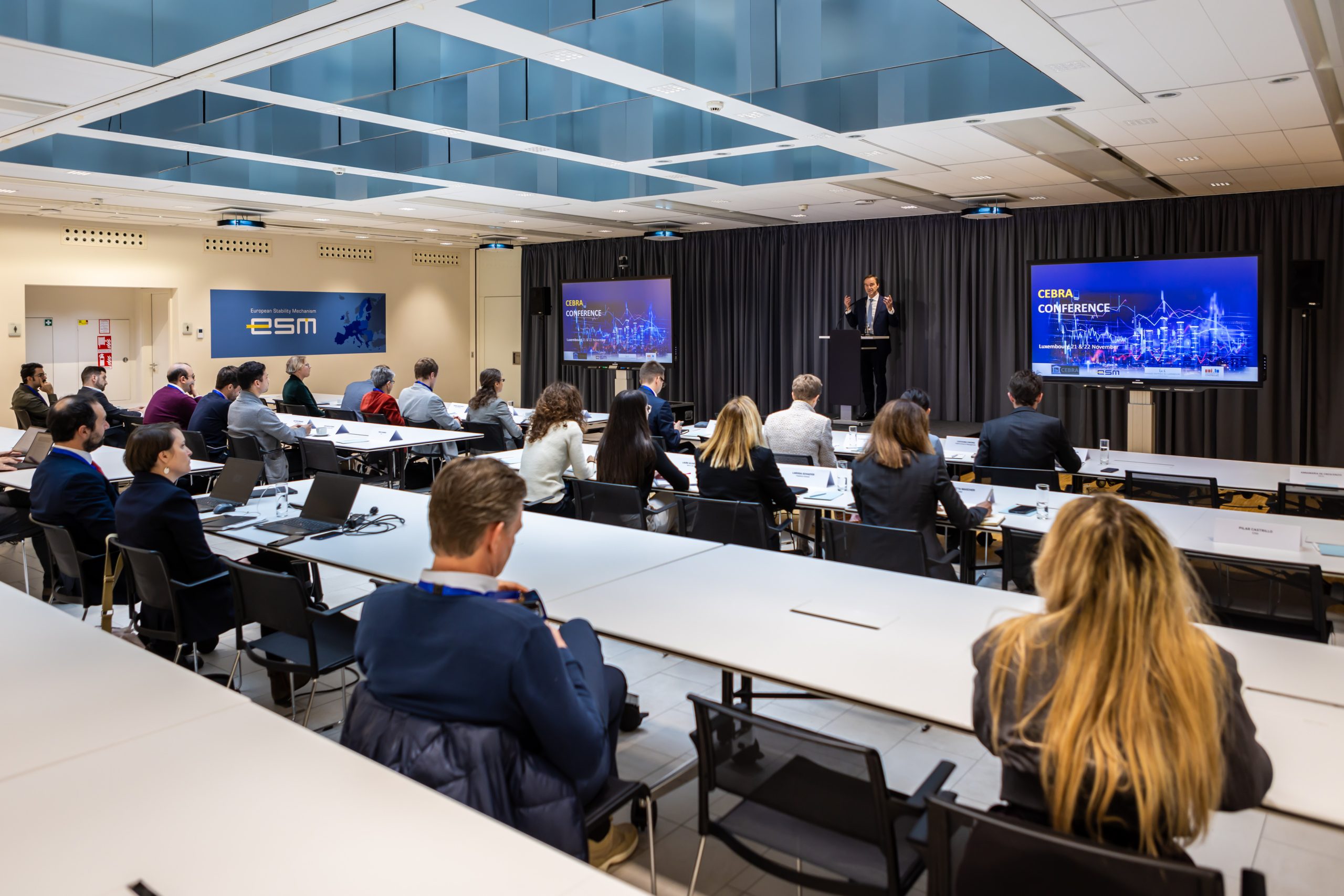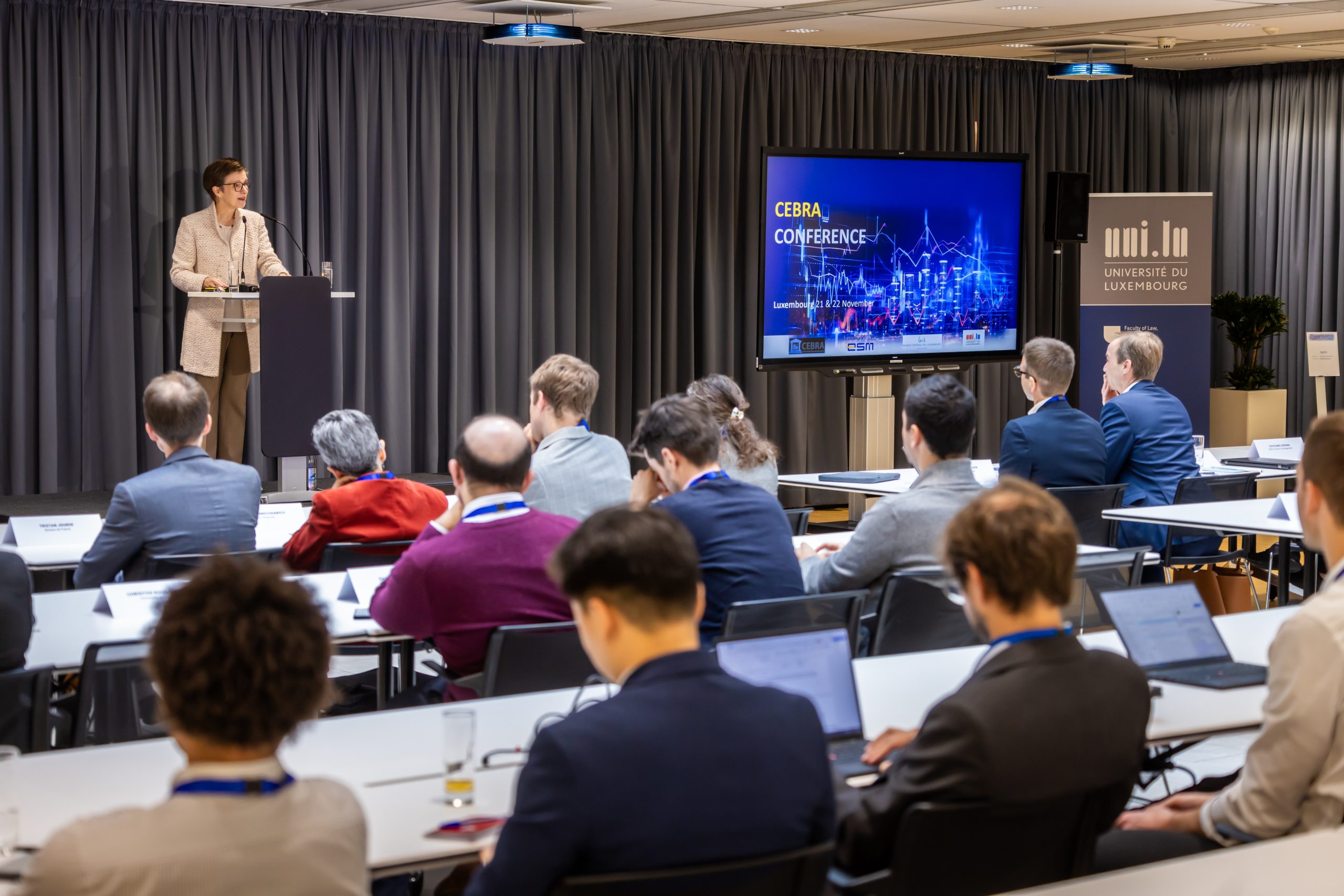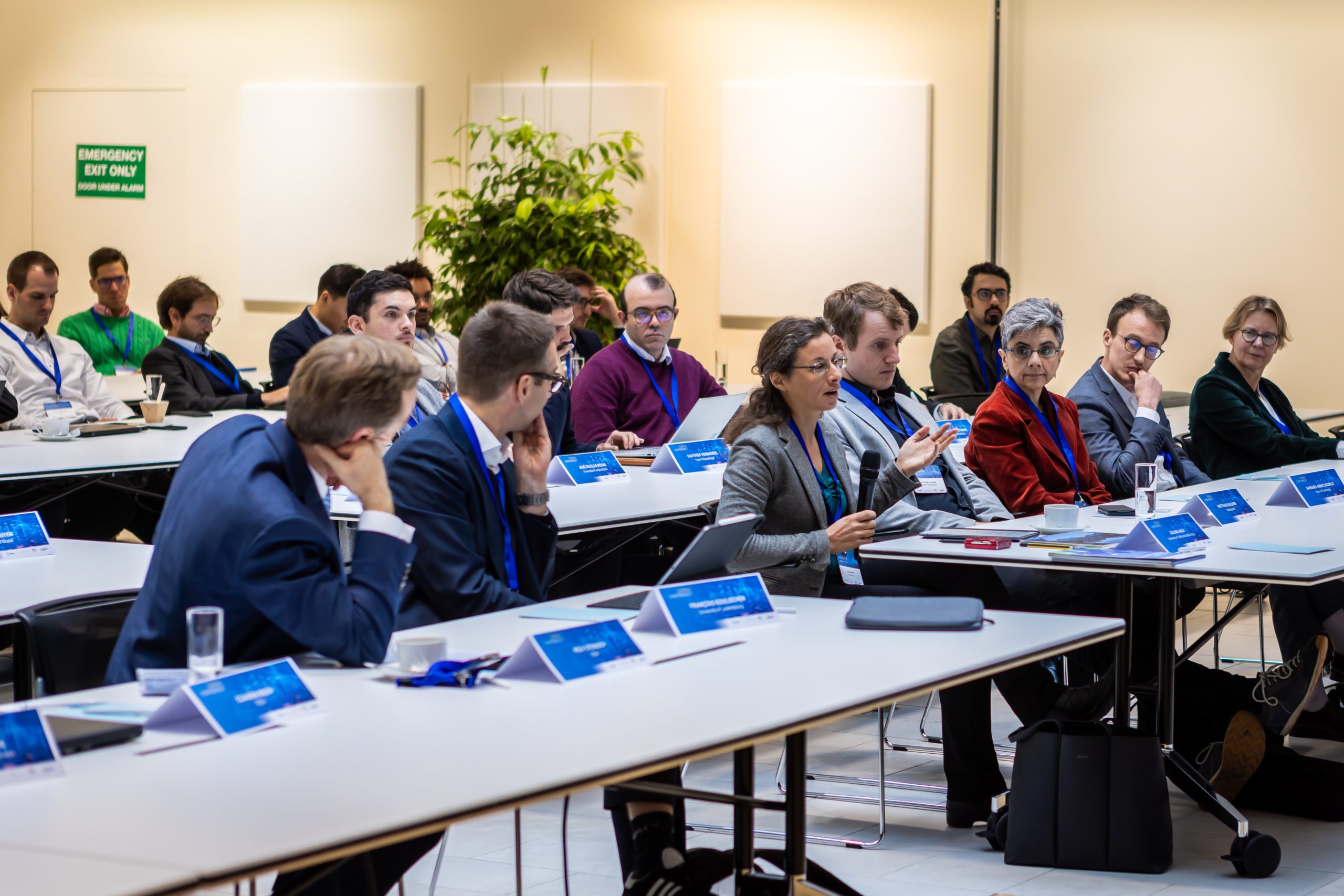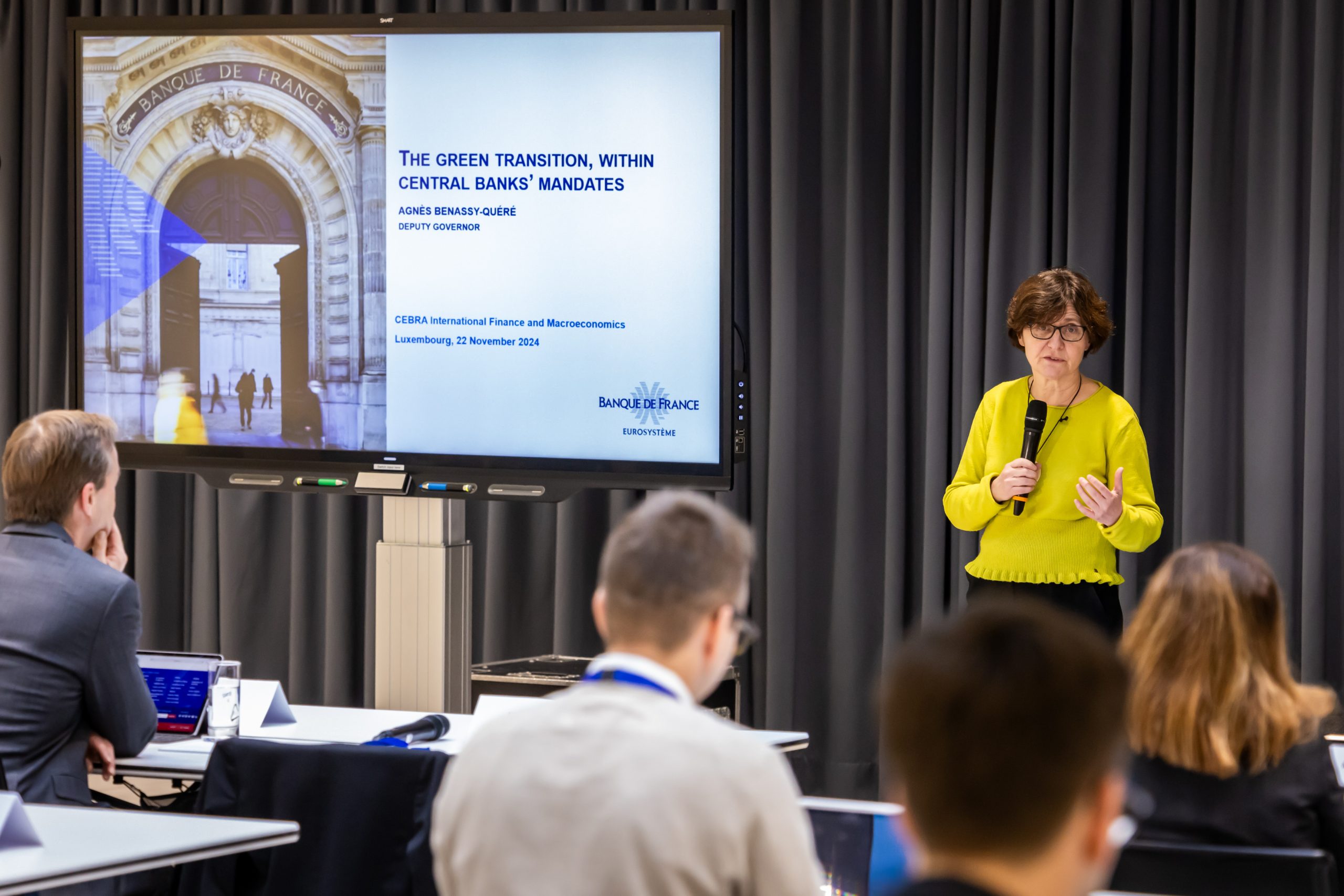On 21-22 November 2024, the European Stability Mechanism (ESM), the University of Luxembourg and the Banque centrale du Luxembourg hosted CEBRA’s International Finance and Macroeconomics program (IFM) annual program meeting. The conference was organized by Galina Hale (UC Santa Cruz), Michael Halling (University of Luxembourg), François Koulischer (University of Luxembourg), Yasin Mimir (ESM) and Lorenzo Ricci (ESM).

The meeting was kicked off by Rolf Strauch, Chief Economist and Member of the Management Board, ESM, who spoke about the current issues in the green transition of financial institutions. His talk was followed by the keynote address by Claudia Buch, Chair of the Supervisory Board at the ECB, who talked about central banks being policy-takers when it comes to climate and the effects of non-central bank climate policies that are relevant to central banks.

Matthias Kaldorf from the Bundesbank demonstrated in his talk short-run financial stability risks from climate policies but showed that, for a patient policymaker, transition risks are more than compensated by long-run improvements in financial stability. Matthias’s theory prediction seems to be consistent with the data, as Tristan Jourde, Banque de France, showed empirical evidence that transition risk exposures are positively associated with systemic risks. Specifically for the EU, Ghassane Benmir, IE Business School, illustrated the welfare costs of the high volatility of ETS carbon prices and proposed a way for the prices to be stabilized around a target value, such as the social cost of carbon, by changing permit supply.
Turning to central banks, José Nicolás Rosas, Pompeu Fabra, explored whether non-climate policies affect emissions. José demonstrated that when monetary policy tightening reduces economic activity, emissions actually go up. This counterintuitive effect can be explained through differential responses in energy prices, where the relative cost of carbonated energy falls more in response to the shock.

Central banks, however, do have a way to influence financial flows, which are crucial to the green transition. While, as Claudia said, this is not a substitute for climate policies, catalyzing private financing of green technologies is a necessary condition for a successful transition. As Sophia Chiyoung Cheong, ESSCA School of Management, and coauthors demonstrated, current private financial flows to emerging economies are actually counterproductive in terms of the green transition. What policies will actually help tilt return on investment measures in favour of green projects is a very complex question. Annamaria de Crescenzio, OECD, gave us some answers by presenting novel information on the landscape of actual green investment, a much-needed improvement over self-reported metrics.
One of the tools in the central bank toolbox is climate stress testing. Trang Nguyen, University of Bristol, showed that information quality improvement actually increases lending to brown firms, but growth rates of lending to green projects are even higher. Thus, increasing information quality about exposures to transition risks is an important part of directing funds to green transition. Laura Álvarez Román, Banco de Espana, demonstrated that information is also crucial for managing physical risks: in the aftermath of climate disasters local banks are able to maintain their lending to affected firms without compromising their risk profile by relying on soft information. Expanding climate stress testing can improve the quality of information on both transition and physical risks.
In her keynote address, Agnès Bénassy-Quéré, deputy governor of the Banque de France, provided an insightful overview of the work of the Network for Greening the Financial System, including recent updates of their climate scenarios and their implications for monetary policy. Agnès also highlighted the potential risks to financial stability and the important, and under-studied, role of insurance in protecting against climate risks. Galina Hale, University of California Santa Cruz, finally concluded the conference with a summary of the main themes and policy debates going forward.

*****
All images ©Olivier Dessy
